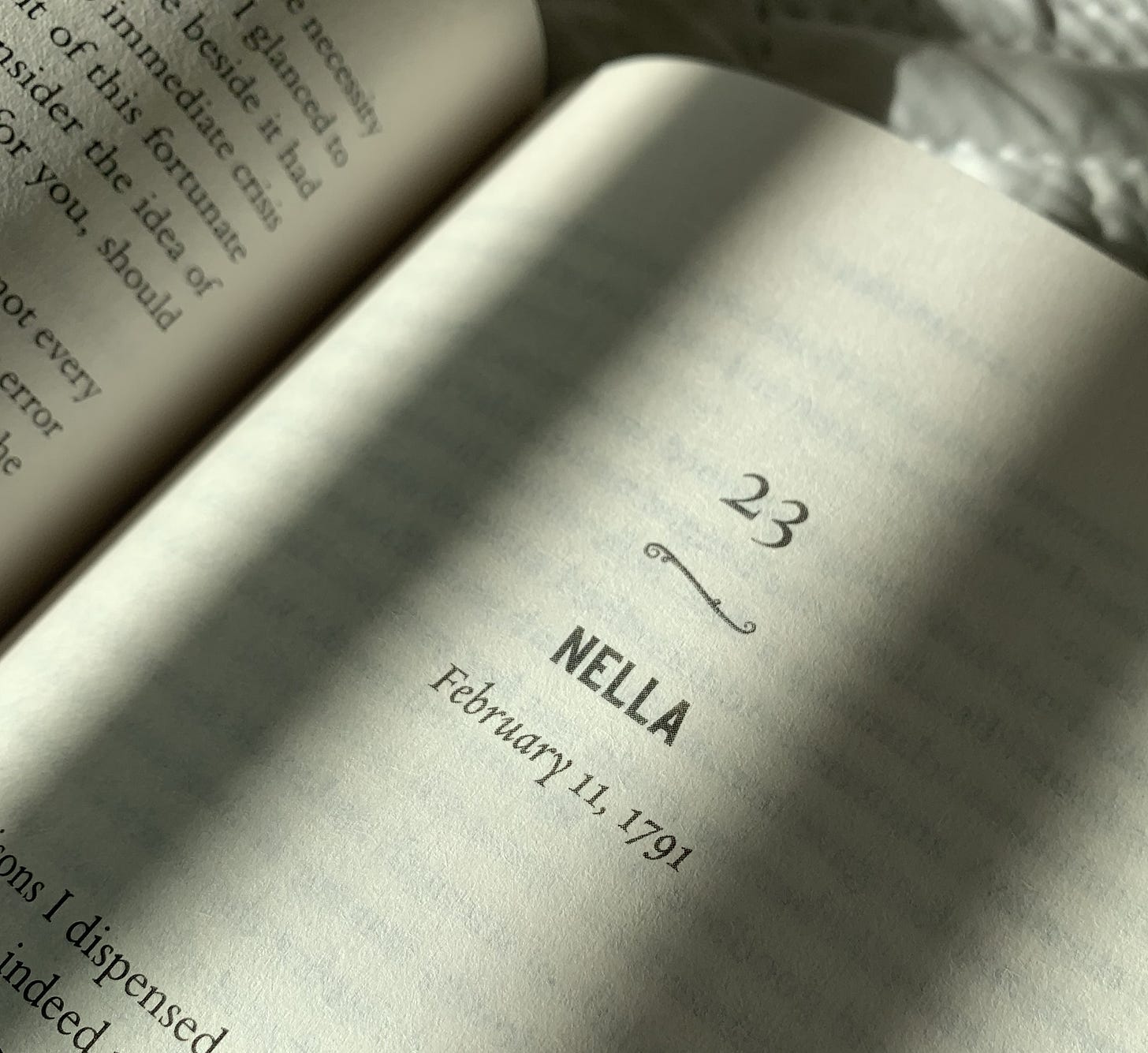Intriguing, unique, creative are the best ways to describe The Lost Apothecary. Prior to diving in, I saw numerous reviews and posts on social media about how incredible the book is, so there was quite a lot of hype surrounding it. Some high expectations for sure.
First impressions - I enjoyed the book greatly. I don’t think, however, that it quite lived up to the hype, but I still enjoyed it. This little peach of a book is considered a historical fiction. Typically, I tend to not connect with this genre, but I can honestly say that I found the stylistic approach to this book engaging and relatable.
The two alternating timelines and the three alternating points of view allowed enough distinction between the present and the past that neither one overwhelmed the overall flow and development of the plot as a whole. And, I do love multiple POVs!
The 1791 timeline progressed in time along with Caroline’s present day research and discoveries of Nella and Eliza’s poisonous endeavors. This historical timeline felt like it had more substance and depth than the present day line. While I enjoyed Caroline’s research, the past provided the thrill and excitement that holds your interest as a reader. Which makes sense because there is only so much that Caroline can find in some spur of the moment research.
Nella and little Eliza are probably more alike than they realize even with decades worth of an age difference. The historical timeline, having two points of view, really allows the reader to see how these two characters really came to find themselves in each other. They each found something they were missing, yet bonded over the secret actions of the hidden apothecary. Eliza needed some poison and as an inquisitive, intelligent 12 year old, she became fascinated with brewing and magic. Nella didn’t realize or accept how lonely she was until she had someone like Eliza come into her life with honesty and passion. Through that relationship they both found a deeper purpose in life.
I think this is why so many readers enjoy this timeline more than the present. There is greater character development in two dominant characters, versus just Caroline and a handful of secondary characters she interacts with. It doesn’t help that her husband is an a-hole. I found his little distributions to the plot slightly annoying and her reactions underwhelming. But Like Nella and Eliza discovered themselves through each other, Caroline also discovered herself through them.
One of my favorite things about the book is that Nella’s process in making her poisons and the procedure for how women could request “help” was fully developed. The lengths that Nella went to to make sure that each poison was made with loving care, the hours spent on each one, the tender hands go a long way to show how her own past changed and motivated her.
Nella’s register is the most symbolic element presented in the story. Yes, it symbolizes death and vengeance, but I feel to Nella there is a peace and healing surrounding it, at least for a time. Once meeting Eliza, it becomes more of a burden of the past; chains that she must break. It is a powerful record, though, of lives touched by the Apothecary.
The little blue bottle symbolically ties the present to the past. It is the driving force behind everything that occurs throughout both timelines. Every important character touches this. Without it, there is no story. However, without Mudlarking, there would only be half a story! I found this activity fascinating. I can understand Caroline’s initial feelings about it, but I probably would have reacted the same way to Bachelor Alf. I wonder if there are any local mudlarking excursions I can join.
There were a few minor things, however, that made me scratch my head a little. Like Caroline’s husband. Ugh, I think he took more away from the story than he actually added, but I already stated what I thought of him. I was just surprised by her ability to be as compassionate towards him. And, I wish my master’s program was only nine months long! That would have saved me a lot of money.
Where does it land on my bookshelf?
I’m a little torn on this one. I’m not sure I would necessarily place it on my top shelf, but it seems like the middle shelf isn’t good enough. In the end, I will place it at the front of my middle shelf. It’s fun and dastardly and hopeful and intriguing. It was a different kind of book than I have been reading lately, and I would highly recommend it to anyone who likes a good fictional story with a historical twist. There is a little bit of something in it for everyone. Even though I don’t feel like it lived up to the full hype preceding my reading, it’s worth reading. You won’t be disappointed!





